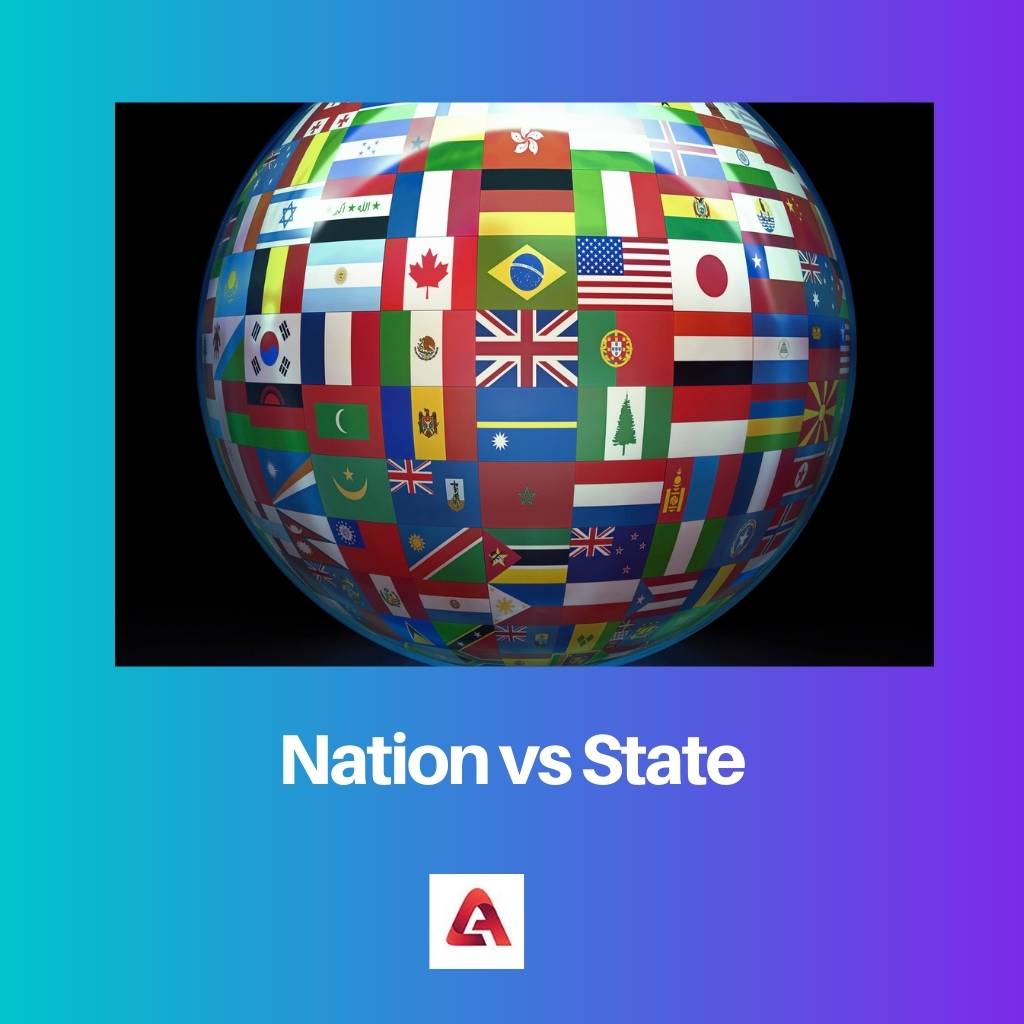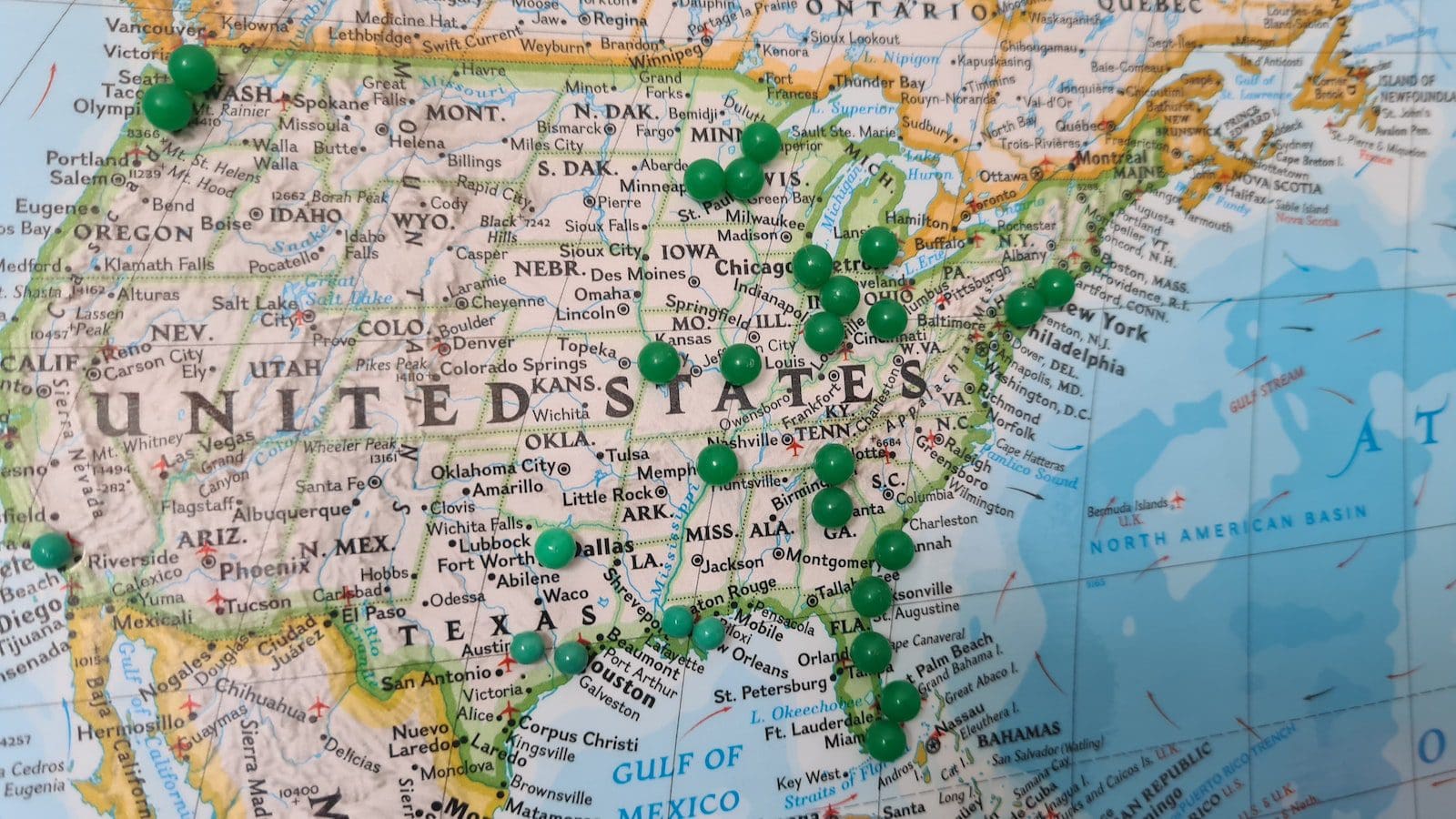A territory that has its institutions and population comprises a state. A nation can be seen from a much wider angle; it incorporates several such territories or states which are united by their history, culture and various other factors.
Nation is used as an identity for most people, whereas state is referred to as a person’s home or a sense of belonging.
Key Takeaways
- A nation represents a group with a shared culture, history, and identity, while a state refers to a politically organized territory with a government.
- Nations can exist without a specific territory, whereas states require defined geographical boundaries.
- States exercise sovereignty and political authority, while nations emphasize cultural and historical connections among people.
Nation vs State
A nation is a group of people who share a common identity, culture, language, history, and a sense of shared destiny. A nation can exist without a state and may be dispersed across multiple states. A state is a political entity with a defined territory, a government, and the ability to exercise sovereignty over its territory and population. A state may be composed of one or more nations.

A nation is seen as a community of people who were formed on varied factors such as a common language, ethnicity, culture, and shared history, who come to represent the collective identity of people.
The word nation means ‘birth’ in Latin. People identify as a nation with their cultural community and shared territories
A state is under the governance system either with monopoly or by force. Stateless governments do exist, such as the “Iroquois Confederacy.”
Under a federal union, all of these states are called the federated polities that constitute a federation. Only 5,500 years ago, states came into existence before people lived in a stateless society.
Comparison Table
| Parameters of Comparison | Nation | State |
|---|---|---|
| Etymology | Nation originated from the word ‘nation in French which originates again from the Latin word ‘natio.’ | The word state is derived from the European languages. It is again derived from the Latin word ‘status’ |
| Definition | A nation is described as a community of people who inhabit different territories but are united by common history | According to the Oxford Dictionary “a state is an organised political community under one government; a commonwealth; a nation.” |
| Period of Origin | A nation came into existence by 1000 BC to 500 BC | A state came into existence and recognised was in the year 1787 |
| First to Exist | Canada was the first nation to come into being. | ‘Delaware’ was the first state to exist in 1787. |
| The Two Types | Civic nation and Ethic nation are the two types of nation. | The sovereign state and the federal state are the two types of states. |
What is a Nation?
A nation is a group of people or a larger number of people who share the same origin, language that they speak, traditions they follow and shared ethnicity.
‘Nacion’ in French means birth or the place of origin from which the word Nation was derived.
In Latin, the word ‘Natio’ means birth as well. The nation is also a community of people who share a defined territory, and they are under an independent government or as a sovereign.
Many social scientists in the late 20th century argued that the nations were of two types which are a civic nations and an ethnic nation.
The civic nation was from the French Revolution, with ideas developed from the 18th-century French philosophers who called the nation a willingness to live together.
The ethnic nation concept is from the 19th-century German philosophers who say a nation comprises people who have a common history.
The term Nation is also the shared belief that a people of a country are connected to each other with defined territories.

What is a State?
A state is where the people have formed a community and exercise power within a particular territory. Several states together make a nation. The four categories of a state are the population it has, the defined territory, sovereignty and the government.
A state is also a political community that comes under a nation.
A state can be of two types: the sovereign state and the federal state.
A sovereign state has a defined territory with its government. It is not dependent on another power. It has its institutions and a stable population confined to a territory. It has the right to make treaties and agreements with any other state.
A federal state comes under the federated policies of the federation. A state came into existence after the origin of the society.
It has a fixed territory, political organisation and the power to enforce laws. It has an organized economy with rules and protocols being set.
There are also two other categories of a state: democracy and dictatorship.
The functions of a state are to maintain law and order and maintain stability, when there are various kinds of disputes, it has to solve them through a legal system, it has to provide common defence, to maintain the welfare of the population, such as maintaining a good public health measure and providing education.

Main Differences Between Nation and State
- A nation has a large geographical area with people who have a common identity. The nation can be seen as an ethnic or cultural identity, whereas the state can be seen as a geographical and political identity.
- Many states comprise together, and it is called a nation and not many nations can be called a state.
- A state has defined territories with a government, sovereign or hegemony as a ruling power. A nation is defined by the shared culture and ethnicity of the population
- A nation came into existence in 1000 BC, whereas a state was recognised only in 1787. The first state was Delaware.
- There are two types of States: federal state and sovereign state. There are two types of nations: a civic nation and an ethnic nation.
- The state has people who are bound by territories, but the nation is about the people who feel the uniqueness and oneness in sharing the same history and culture.

- https://www.taylorfrancis.com/books/mono/10.4324/9781003084815/borders-hastings-donnan-thomas-wilson
- https://books.google.com/books?hl=en&lr=&id=6VTHAAAAQBAJ&oi=fnd&pg=PP1&dq=nation+and+state+difference&ots=YwN_k-Uznr&sig=AogJa1LCeSkX9fXbJjVW1ObHT4I

The article raises thought-provoking questions about the definitions and implications of nation and state.
Definitely thought-provoking, especially given the complexities of modern geopolitics.
The historical and cultural perspective makes these terms all the more interesting to explore.
The similarities and differences between civic and ethnic nations are significant in understanding the concept of a nation.
Indeed, these distinctions have influenced political and social movements throughout history.
Absolutely. The impact of civic and ethnic nations on statehood is truly intriguing.
This is a very well-written article that makes it easy to differentiate between nation and state.
Agreed. The article provides a clear understanding of the complexities surrounding these terms.
The definitions and implications of nation and state are much more nuanced and complex than commonly perceived.
Indeed, the depth of these concepts goes beyond their superficial understanding.
Absolutely. Understanding the nuances of nation and state is crucial in global discourse.
This article provides a comprehensive understanding of the historical, cultural, and political dynamics underlying the concepts of nation and state.
The article’s comparison table provides a comprehensive overview of the etymology, definition, period of origin, and types of nation and state.
I found the comparison table to be extremely informative and enlightening.
Agreed. The table is a succinct way to understand the core differences between a nation and a state.
The article’s historical and philosophical perspectives on nations and states are quite enlightening.
Absolutely. The insights into historical and philosophical contexts are invaluable in understanding these concepts.
I couldn’t agree more. The article provides a nuanced understanding of these profound concepts.
The difference between nation and states is a really interesting topic to investigate.
Yes, it’s essential to understand these differences to comprehend the global dynamics.
I agree! There are so many factors to consider when defining both terms.
It’s fascinating how the concept of a nation and state has evolved over centuries.
Yes, the changes in their definitions and implications are truly thought-provoking.
I completely agree. The evolution of these concepts has shaped international relations significantly.
The historic and cultural aspects make a significant difference between a nation and a state.
Absolutely, the historical and cultural ties put a nation in a broader context than a state.